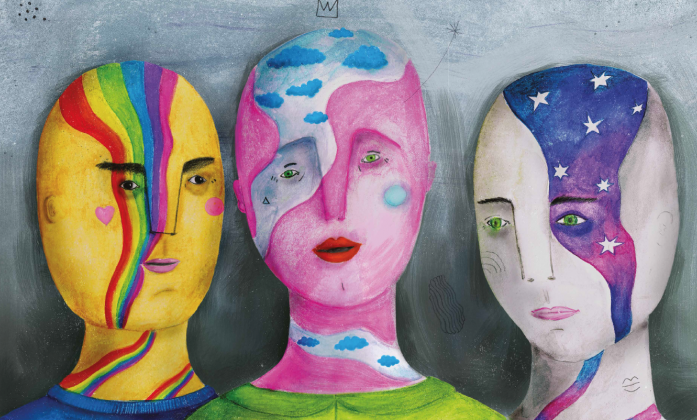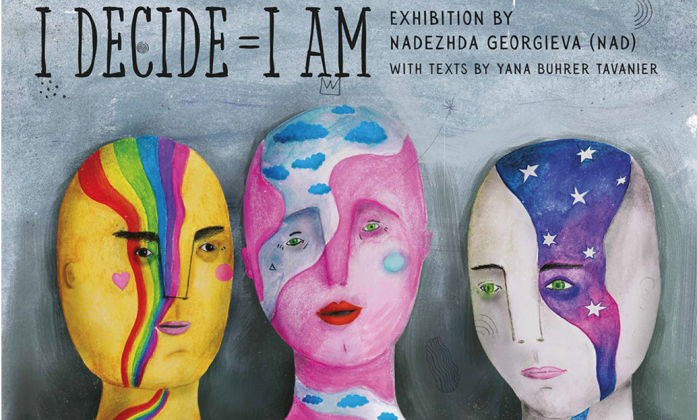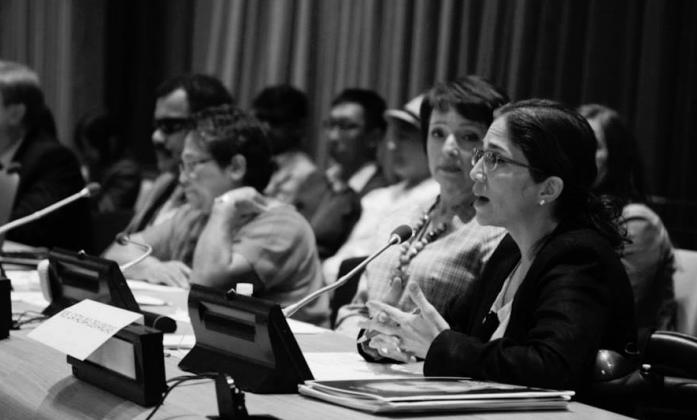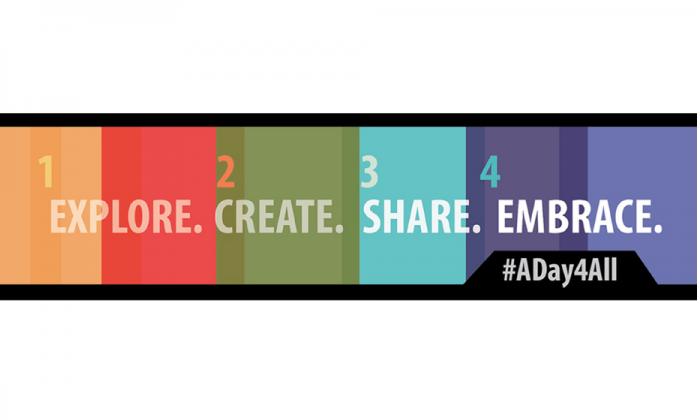
"Every year, on December 3, we come together to join persons with disabilities around the world in celebration of A Day for All. On this occasion, I cordially invite you to the vernissage of the arts exhibition I decide = I am and the reception which will be held on Friday, 2 December 2016, from 5.00pm to 6.30pm, in Palais Wilson, Geneva.
"This year’s celebration will be opened by Zeid Ra'ad Al Hussein, High Commissioner for Human Rights and will continue with a presentation from the Bulgarian Center for Not-for-Profit Law and Bulgarian Association of People with Intellectual Disabilities, on their experience in promoting the equal recognition of persons with disabilities before the law.
"I am also pleased to announce that Craig Mokhiber, Chief of the Development and Economic and Social Issues Branch, and Deyana Kostadinova, Ambassador and Permanent Representative of the Republic of Bulgaria to the United Nations Office, will join me for a Q&A session on the subject.
"So let’s come together this day, to reaffirm our commitment to human rights and celebrate persons with disabilities as part of our wonderful human diversity."
- Catalina Devandas-Aguilar
Special Rapporteur on the Rights of Persons with Disabilities
Confirm participation at sr.disability [at] ohchr.org, bring a valid ID and ![]() a copy of this invitation (click to downlaod) on the day of the event.
a copy of this invitation (click to downlaod) on the day of the event.
More information about the reception event: aday4all.net/i-decidei-am
Legal capacity – in other words the recognition of the human being as a holder of rights and agent under the law – is an inherent right accorded to all people. Most of us would probably remember that throughout history many groups, including women or ethnic minorities, were restricted in their legal capacity: unacceptable situation that called for action. However fewer would know that persons with psychosocial or intellectual disabilities remain the group whose legal capacity is most commonly denied in legal systems worldwide. It is difficult to know this when the voices of persons with disabilities are silenced by substitute decision making schemes, such as guardianship or mental health laws that permit forced treatment.
The denial of legal capacity to persons with disabilities has, in many cases, led to deprivation of many fundamental rights, including the right to vote, the right to marry and found a family, sexual and reproductive rights, parental rights, the right to give consent medical treatment, and the right to liberty, among others.
In 2006, the Convention on the Rights of Persons with Disabilities reaffirmed the right of persons with disabilities to enjoy the exercise of legal capacity, in light of the principles of non-discrimination and respect for the individual autonomy, including the freedom to make one's own choices. This treaty sets the framework for reforms aimed at ensuring that persons with disabilities regain their full legal capacity and have access to supports that would enable them to seize, secure and act upon their own dignity.
In an attempt to convey a strong call for change, this exhibition tells the stories of sixteen persons who have first-hand experienced what it is like to be denied of legal capacity.


